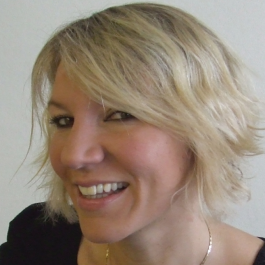Variations on a Sexual Theme
The first vibrator I ever saw, I found
in a plastic bag at the back of a picked-lock drawer,
a rubber pole I closed my hand around.
I knew what it mocked, but not what it was for.
I found condoms too,, in shiny pockets, and a book –
hardback, bronze lettering, a cream cloth cover.
To look was crossing over, and so I looked,
and there I found two lithe and naked lovers
entwined in forty monochrome positions –
A1, A2, A3 – these easier
I supposed, than the willowy contortions
of the later pages. In one, the ‘husband’, stronger,
stands one footed to the ‘wife’ in clinging vine,
their bodies roped together, but his face,
her face, are veiled by art-school hair each time,
as though the sanctified deed was also disgrace.
Careless, I took the borrowed manual
to school, where the lunch-time braggadocio
was all I’ve had her up against a wall,
she’s sucked me off, such cock and bull, but oh,
those boy’s high croaks were cruel. The saddest thing
to be was what we were – virgins – but still
us girls were slappers, slags, as though to sing
those choruses aloud was most of the thrill.
That day, before the class bell struck, my book
passed desk to desk, slow flicking of its pages
and all the children quieter, calmer, hooked
I thought, by the wonder of those images.
Outside, gold winter dark, the school’s fishpond
just visible from our high room, all murky
and dim, before the playing field which ended
where the woods began. That book came back to me
by end of day, in some boy’s soft hands, and his look
was sorry, his look said what I knew already.
Ashamed, I tucked my book away. I took
it home, back to its drawer. I turned the key.
Deportation Blues
From small and airless rooms,
they are taken, handcuffed, to silver coaches –
the ex-soldier, the diabetic, the one who came aged three.
The aeroplane leaves at dawn.
They are taken, handcuffed, to silver coaches
by security personnel who look like wrestlers.
The aeroplane leaves at dawn.
They are body-belted to their seats
by security personnel who look like wrestlers,
big guys, just waiting for us to kick off,
who body-belt them to their seats,
the man who struggles and screams
until a big guy, waiting for them to kick off
closes his hands around his head
until the man cannot struggle or scream.
The one who drops his head in prayer,
closing his hands around his head.
He has six children, three under five,
the one who drops his head in prayer
and two convictions for weed, for speeding.
He has six children, three under five.
He can’t remember Clarendon, Jamaica
but two convictions for weed, for speeding.
They deport you for this.
He can’t remember Mocho, Jamaica,
the young one who grew in care.
They deport you for this.
I need to get back to my son, believe me,
the one who grew up in Manchester.
After the heat, the fingerprints, the interview,
I need to get back to my son, believe me.
It was my little daughter’s birthday.
After the heat, the fingerprints, the interview,
the one who grew up in Yorkshire,
it was my little daughter’s birthday.
Up all night dialling his wife, his mother,
the one who grew up in Yorkshire,
in these small and airless rooms
up all night dialling wives, mothers, England,
the ex-soldier, the diabetic, the one who came aged three.
